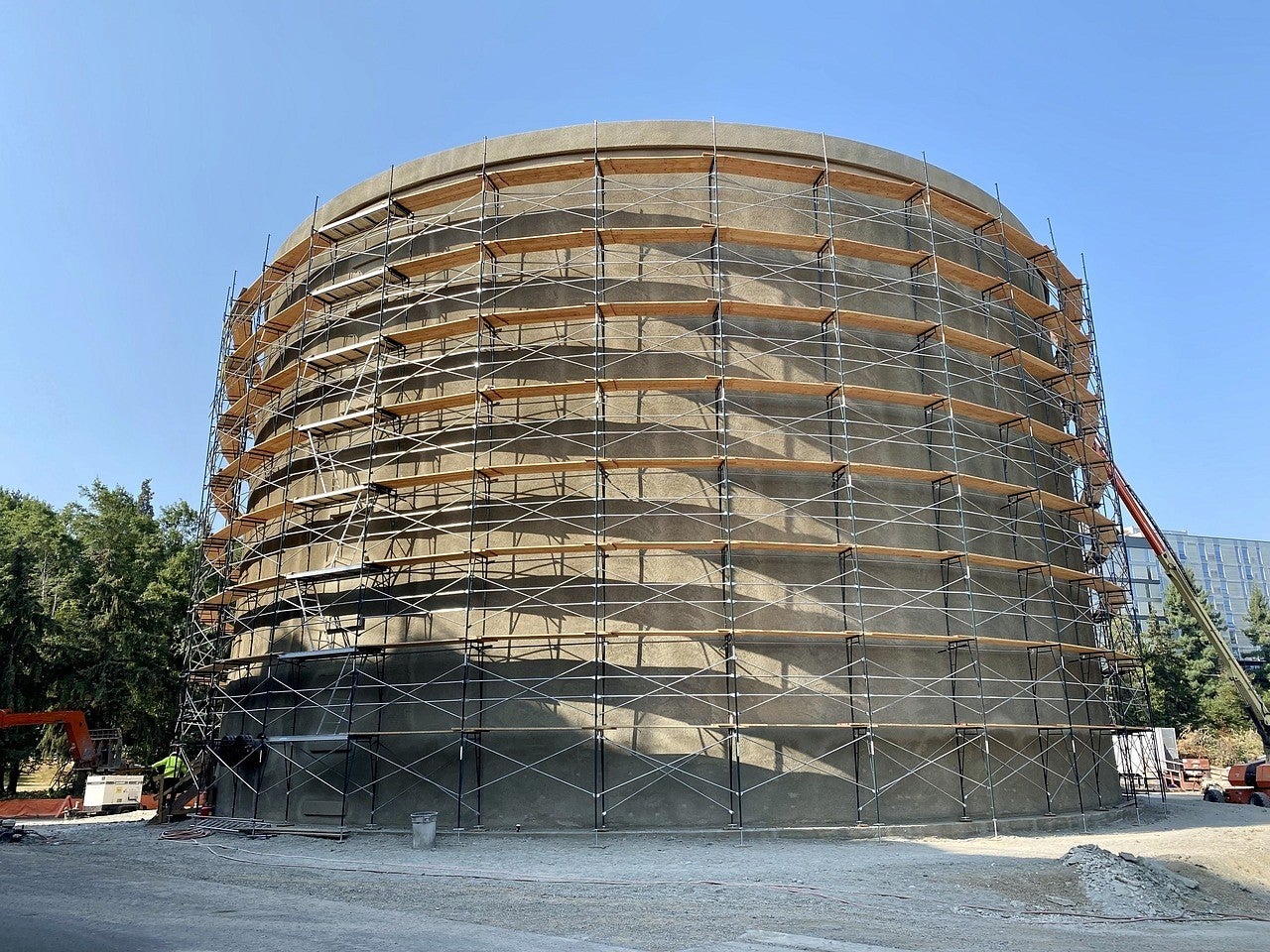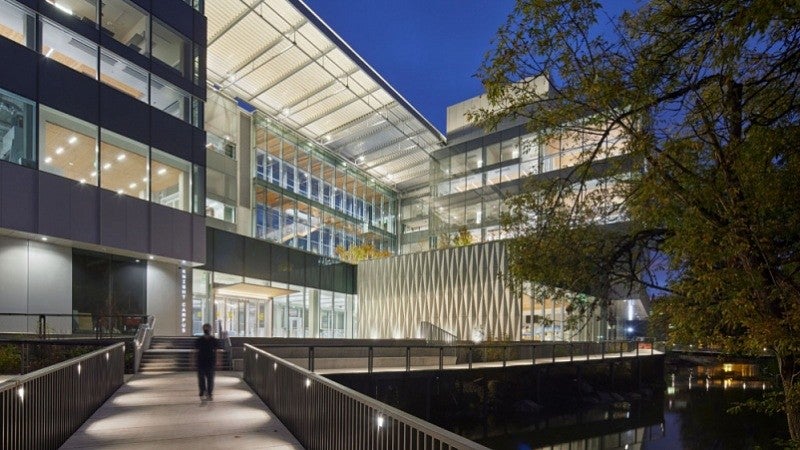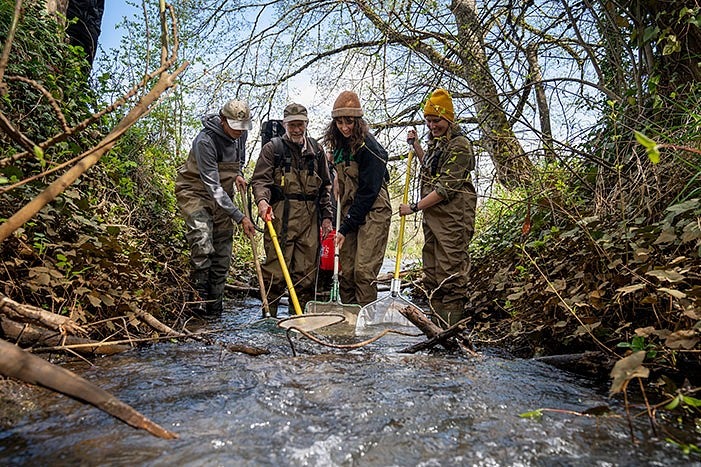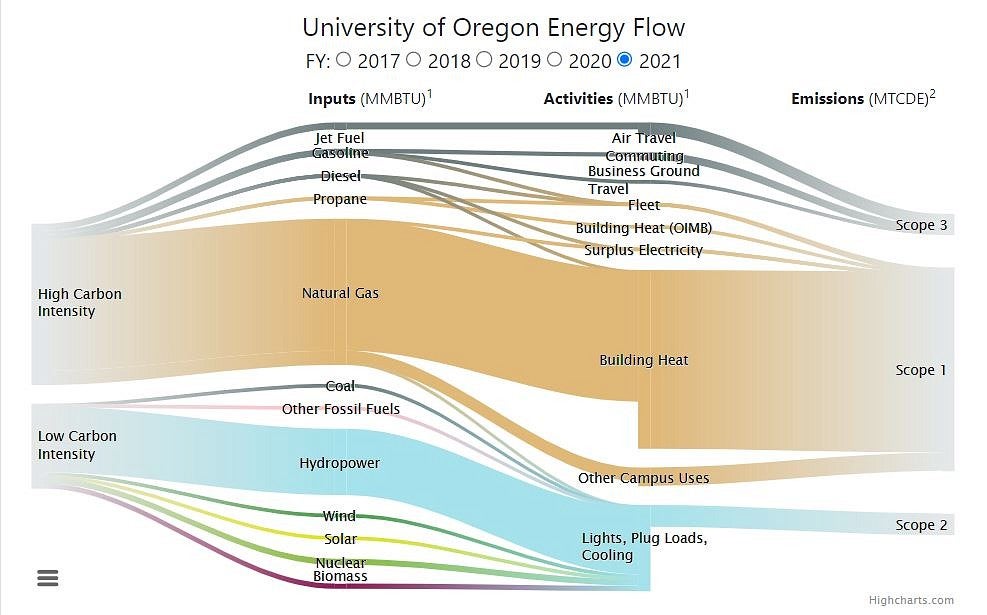The University of Oregon recognizes the importance of cultivating a sustainable campus. Campus Planning and Facilities Management (CPFM) embraces that responsibility and maximizes efforts to make its operations and campus more sustainable. Below you will find information on sustainable steps each of the five departments in CPFM are taking to better campus.

There are 25 diesel vehicles on campus that now use renewable diesel fuel. This switch to renewable R99 diesel in 2022 has decreased the harmful impacts these vehicles have on the environment. In addition to these diesel vehicles, there are also 34 electric vehicles used in Campus Planning & Facilities Management (CPFM). Together, the impact of the University’s vehicle use has changed dramatically.

A thermal water tank was built on campus, storing water to cool at night, which maximizes the use of clean, super-low-carbon nighttime electricity and cools the campus without increasing peak loads. This change will reduce energy consumption and preserve natural resources.

Design & Construction ensures that new buildings and major renovation projects adhere to the Oregon Model for Sustainable Development, which requires achieving a highly energy-efficient building and attaining a Leadership in Energy and Environmental Design (LEED) gold certification. Through development of Campus Design Standards, each project is required to follow Sustainability best practices and look for every opportunity to reduce the impact on campus and community resources. In addition, the Engineering and Utilities team assesses existing buildings and systems and develops projects to improve existing system inefficiencies and re-commissions buildings and systems.

The Willamette River Natural Area (WRNA) was created by Campus Planning, in partnership with other departments and consultants. The WRNA established and restored nearly a mile of riverfront property. A management plan was created that proposes a number of site improvements. This area will be managed over the long-term to preserve and improve habitat values while accommodating compatible education, research, and recreation uses as defined by the Campus Plan.

The Office of Sustainability manages the Sustainability Dashboard which tracks performance in various operations across campus. The dashboard explains goals, reports progress, and provides a basis to discuss improvements while making the data available to faculty and students for research and education. The dashboard is a vital means of tracking the progress the university is making toward a more sustainable future.
